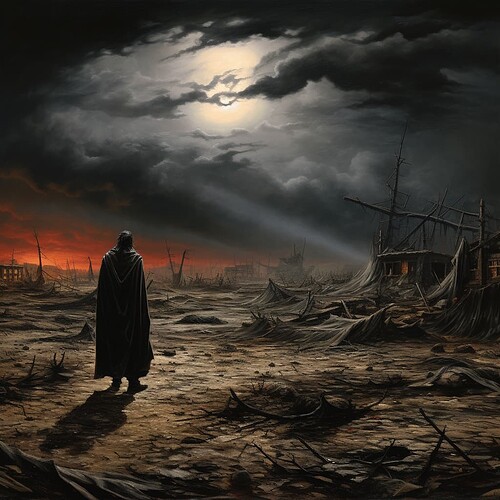![]() Introduction
Introduction
These Psalms, written by David, allow us a glimpse into the heart of a man wholly trusting in God, even amidst chaotic circumstances. We see David’s honest lament and profound trust blended into a tapestry of relatable human emotions.
![]() Psalm 60: An Appeal for Restoration
Psalm 60: An Appeal for Restoration
David calls out to God in the midst of national calamity, expressing deep sorrow for their condition. Yet, he trusts in God’s deliverance, calling Him their banner, the One who rallies and leads His people.
![]() Key Verse: “Give us help from trouble, For the help of man is useless. With God we will perform valiantly, For He will trample our enemies.” (Psalm 60:11-12)
Key Verse: “Give us help from trouble, For the help of man is useless. With God we will perform valiantly, For He will trample our enemies.” (Psalm 60:11-12)
![]() Psalm 61: God, Our Refuge, and Strong Tower
Psalm 61: God, Our Refuge, and Strong Tower
David seeks refuge in God, proclaiming His faithfulness and steadfastness, promising to abide forever in God’s refuge.
![]() Key Verse: “Lead me to the rock that is higher than I.” (Psalm 61:2)
Key Verse: “Lead me to the rock that is higher than I.” (Psalm 61:2)
![]() Key Themes and Reflections
Key Themes and Reflections
- David’s vulnerability yet unwavering faith in God shows us that we too can come to God with our mess, our distress, and yet trust Him.
- The certainty of God’s covenant of protection, represented by David’s confidence that God will deliver and protect can inspire us to hold fast to God’s promises in our lives.
![]() Today’s Application
Today’s Application
In our turbulent times, much like David, we can practice honesty with God, presenting our joys and sorrows, our victories and losses, knowing that He hears us. We can lean into the protection that our rock, our refuge, Christ, provides.
![]() Hidden Gem
Hidden Gem
Did you know that the term “Selah,” present in these Psalms, is often thought to be a musical term possibly indicating a pause or crescendo in the song? It can remind us to pause and reflect on the magnitude of God’s words.
![]() Reflective Q&A
Reflective Q&A
-
 How does David’s reaction to hardships inspire our approach to life’s challenges?
How does David’s reaction to hardships inspire our approach to life’s challenges?
A: David’s balance between lament and trust encourages us to maintain an honest yet hopeful dialogue with God, nurturing a resilient faith. -
 How can we seek refuge in God amidst our personal storms?
How can we seek refuge in God amidst our personal storms?
A: By pouring our hearts to Him in prayer, claiming His promises, and abiding in Christ consistently. -
 What does it mean to you that God is a rock that is higher than we are?
What does it mean to you that God is a rock that is higher than we are?
A: It reassures us of His omnipresence, His supreme power, and His vantage point, seeing far beyond what we can see.
![]() Join the Discussion: Share one area where you need God’s refuge today, and a promise from His word that assures His protection.
Join the Discussion: Share one area where you need God’s refuge today, and a promise from His word that assures His protection.
![]() See You Tomorrow in Psalm 62, 63: Unshakable hope in God and His mighty deliverance!
See You Tomorrow in Psalm 62, 63: Unshakable hope in God and His mighty deliverance!
Remember, God is our reliable rock, our steadfast shelter- let us face our tomorrows with the assurance of His protection.
